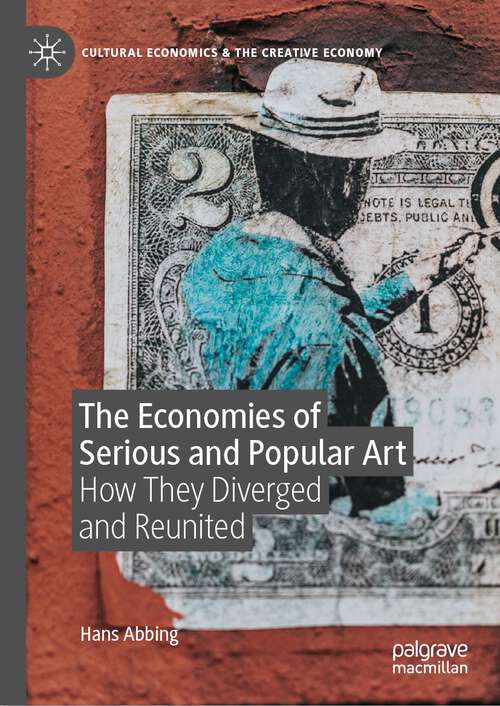The Economies of Serious and Popular Art: How They Diverged and Reunited (1st ed. 2022) (Cultural Economics & the Creative Economy)
By:
Sign Up Now!
Already a Member? Log In
You must be logged into Bookshare to access this title.
Learn about membership options,
or view our freely available titles.
- Synopsis
- Combining an economic perspective with sociological and historic insights, this book investigates the separation of ‘popular’ and ‘serious’ art over a period of almost two centuries. As the boundaries between our perceptions of established art and popular become more porous, Abbing considers questions such as: Who benefitted from the separation? Why is exclusivity in the established arts so important? Did exclusivity lead to high cost, high subsidies and high prices? Were and are underprivileged groups excluded from art consumption and production? How did popular music become so successful in the second half of the twentieth century? Why does the art profession remain extraordinarily attractive for youngsters in spite of low incomes? The book also discusses the evolution of art in the twenty-first century, considering for example how the platform economy affects the arts, whether or not the established arts are joining the entertainment industry, and the current level of diversity in art. Written from the dual perspective of the author as an artist and social scientist, the book will be of interest for cultural economists and academics as well as artists and general readers interested in art.
- Copyright:
- 2022
Book Details
- Book Quality:
- Publisher Quality
- ISBN-13:
- 9783031186486
- Related ISBNs:
- 9783031186479
- Publisher:
- Springer Nature Switzerland
- Date of Addition:
- 12/30/22
- Copyrighted By:
- The Editor
- Adult content:
- No
- Language:
- English
- Has Image Descriptions:
- No
- Categories:
- Nonfiction, Art and Architecture, Business and Finance, Sociology
- Submitted By:
- Bookshare Staff
- Usage Restrictions:
- This is a copyrighted book.
Reviews
Other Books
- by Hans Abbing
- in Nonfiction
- in Art and Architecture
- in Business and Finance
- in Sociology
